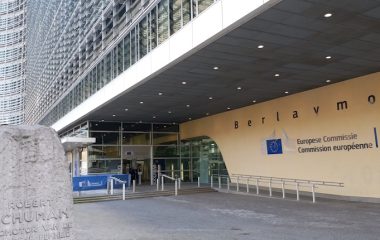
Photo: Kanenori from Pixabay
The cost of carbon dioxide within the European Union’s Emissions Trading System touched EUR 55 per ton this week in a sharp selloff. Prices at markets for CO2 permits have also plunged in North America, the United Kingdom and Australia despite record-high levels for natural gas and coal and an oil surge.
Last year the prices of certificates that industrial and electricity producers need for emitting greenhouse gases grew in line with fossil fuels as the energy crisis unfolded, but this week the trend reversed amid the war in Ukraine. Investors are retreating from the market for CO2 permits and some analysts suggest the current selloff could be caused by a lack of cash due to losses from the spike in commodities from energy to building materials.
Within the European Union’s Emissions Trading System (EU ETS), the price of the March contract at the ICE Endex exchange was down 1.8% today at EUR 67 per ton at the end of trading, the lowest point since mid-November, after briefly dipping to as low as EUR 63.3 per ton. At the same time, fossil gas and coal spiked to all-time highs and Brent oil climbed to just under USD 120 per barrel, the highest level in almost ten years.
Yesterday the intraday price of a ton of CO2 equivalent plunged to EUR 55 per at one moment. Less than a month ago, carbon permits reached an all-time high of over EUR 96 per ton.
Industrialists lobbying to suspend EU ETS
“This is the first time that energy prices are rising and that the prices for certificates within the EU ETS system are dropping. A possible reason for the sales could be liquidity needs, whether among Russian or European investors. One of the strong factors is the industrial lobby tied to fossil fuels, which is demanding for EU ETS to be temporarily suspended until the situation related to Ukraine is resolved,” said Damir Miljević from the Regional Center for Sustainable Energy Transition (RESET) from Sarajevo, Bosnia and Herzegovina.
A draft document from the European Commission leaked yesterday to the media showed the indirect compensation for CO2 emission costs through the state aid mechanism could be expanded to other industry sectors, he pointed out in a statement for Balkan Green Energy News. Miljević added he doesn’t believe the fall in prices of permits was caused by betting on a possible halt in supplies of energy from Russia and argued that the Europeans are already starting to order huge amounts of liquefied natural gas (LNG) from other suppliers.
Russians must cash in to avoid sanctions
Other analysts say market participants may be selling any excess CO2 certificates they have to cover their positions on the gas front and point out that Russian investors must cash in to avoid sanctions.
The General Confederation of Italian Industry or Confindustria said two days ago that the EU ETS should be put on pause for the time being and that the EU’s climate policy needs to be reviewed “to protect essential industrial supply chains.” The group said market speculation propped up CO2 emission prices to the detriment of Italian producers.
However, the European Securities and Markets Authority (ESMA) recently said speculative activity makes up only 4% of the EU ETS market. Furthermore, there is an initiative in the European Parliament to make it easier for the EU to increase the supply of carbon permits in case of drastic price increases.
Relief for payments for emissions and loosened rules would lead to a decrease in demand for the permits and reduce the possibility of market manipulation.




















Be the first one to comment on this article.